Health care workers, teachers and other essential personnel have been among the hardest hit by Covid-19 and should qualify for a vaccine booster shot — despite a lack of robust evidence that they need a third dose to protect them against severe disease, the head of the Centers for Disease Control and Prevention said Friday.
“In a pandemic, we must often take steps with the intention to do the greatest good, even in an uncertain environment,” Dr. Rochelle Walensky said Friday during a White House Covid-19 task force briefing.
Full coverage of the Covid-19 pandemic
Walensky cited the disproportionate impact the pandemic has had on racial and ethnic minority communities as a reason she recommended a booster dose for people 18 and older at high risk of Covid because of “occupational and institutional exposure” against the guidance of the CDC’s advisers.
“Withholding access for boosters for these people and communities only worsens the inequities that I have committed to fight against,” she said.
Walensky’s decision to allow millions of Americans over the age of 18 the opportunity to get a booster was an unusual move. She overruled the agency’s Advisory Committee on Immunization Practices, which voted to limit boosters to elderly people and older people with underlying health conditions.
Who qualifies for a booster?
For two groups, the CDC was clear: People ages 65 and older and those in long-term care settings and people ages 50 to 64 with underlying medical conditions should get a third shot of Pfizer’s Covid-19 vaccine at least six months after their first two shots.
Underlying medical conditions include cancer, diabetes, obesity, pregnancy and kidney disease.
The recommendations only apply to those who received the first two doses of Pfizer-BioNTech’s vaccine, the only vaccine booster authorized by the Food and Drug Administration. Booster shot data for those who got the Moderna or Johnson & Johnson shots are forthcoming, the CDC said.
The guidance from the FDA and CDC comes after data from Pfizer found its vaccine’s immunity started to decline after six months. Evidence has been strongest for a booster dose in people ages 65 and older. There is little data about the risks of severe illness for younger people who are fully vaccinated and even less evidence showing the safety of a third dose.
This was the sticking point for many experts during the CDC advisory panel’s meeting.
“What worried them was the younger age limit and the potential to do more harm than good,” said Dr. Paul Offit, director of the Vaccine Education Center at Children’s Hospital of Philadelphia, about the CDC group’s recommendation.
Researchers had previously reported a higher-than-usual number of cases of a type of heart inflammation called myocarditis among young people following their second dose of an mRNA vaccine.
This may be why there were gray areas in other CDC booster shot guidance.
The agency did not provide a strong recommendation for two other major groups. Adults under age 50 with underlying conditions as well as adults under age 65 whose jobs could put them at risk for Covid-19 exposure may get the booster if they want it.
Those occupations include areas where people from a variety of backgrounds congregate: schools, health care settings, jails and homeless shelters.
The difference in language — “should” vs. “may” — has frustrated some physicians who are now faced with interpreting what to do with the CDC guidance.
“The problem is, I don’t know how to implement a ‘may’ recommendation,” said Dr. Hugh Cassiere, director of critical care services for Sandra Atlas Bass Heart Hospital at North Shore University Hospital, part of Northwell Health, on Long Island, New York.
“The reason why they said ‘may’ is because the data are weak,” he said. “Why even mention it?”
The guidance, however, could be interpreted differently depending on the level of transmission within specific communities.
“You could be a teacher in a school district where there’s very little Covid circulating, and you’re really not at risk as a result of your occupation,” said Glen Nowak, co-director of the University of Georgia’s Center for Health and Risk Communication.
Conversely, he said, educators in high-risk areas may fit the requirements for a third dose.
“Your risk situation can change quickly and unpredictably,” Nowak said.
On Thursday alone, the agency had logged more than 120,000 daily cases, nearly 10,000 hospitalizations and almost 2,000 Covid-19-related deaths.
Download the NBC News app for full coverage of the Covid-19 pandemic
Fully vaccinated still protected
On Friday, Walensky said people should still consider themselves fully vaccinated after getting two doses of a Pfizer or Moderna vaccine or the one-dose Johnson & Johnson vaccine.
Outside experts stressed that fully vaccinated individuals are not at immediate risk of infection. Israeli dataon the Pfizer shots showed that despite a drop in protection from overall infection, the vaccines remained 93 percent effective in preventing severe illness.
“This is not an emergency,” said Dr. Jesse Goodman, infectious disease specialist at Georgetown University Medical Center and former chief scientist with the Food and Drug Administration. People who have received both Pfizer doses “are still afforded significant protection.”
Indeed, it is the unvaccinated population that makes up the vast majority of severely ill Covid patients in hospitals and intensive care units.
“Infections among the unvaccinated continue to fuel this pandemic resulting in rising numbers of cases, hospitalizations and deaths,” Walensky said Friday.
The administration’s focus, she added, will be on getting the vaccine to those who have not received a single shot.
“We will not boost our way out of this pandemic,” she said.
As of Friday, the CDC reported that just 55.1 percent of the U.S. population had been fully vaccinated against Covid-19.
Follow NBC HEALTH on Twitter & Facebook.

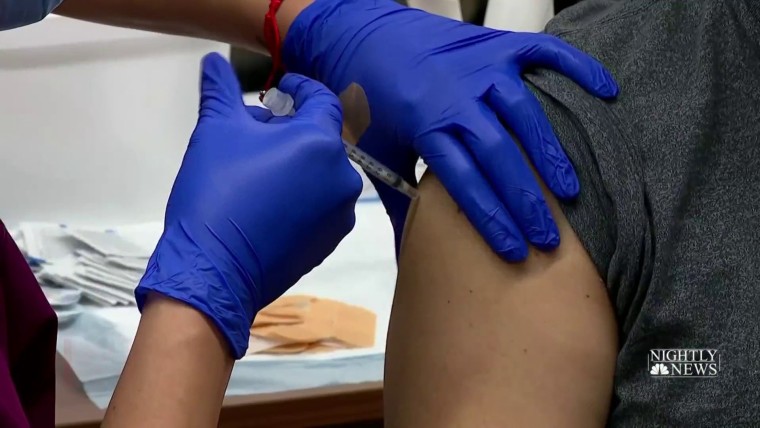
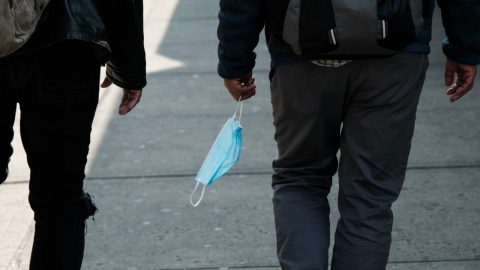


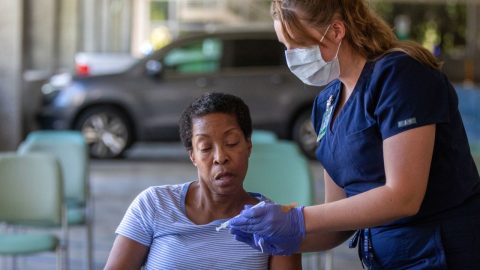

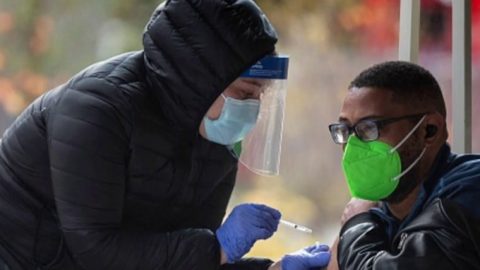
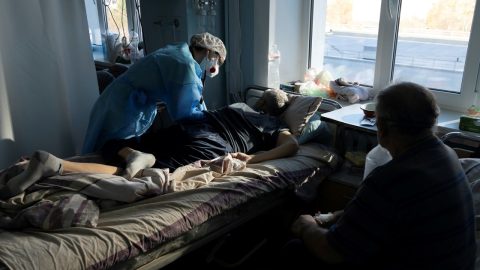

Recent Comments